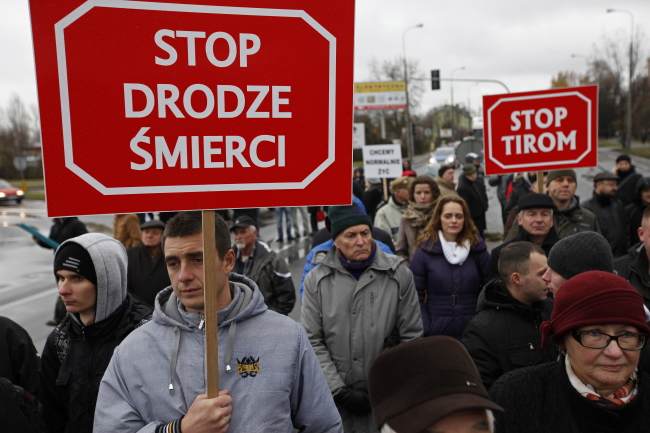
Protest in Suwalki north east Poland on Tuesday concerning city bypass: photo PAP/Artur Reszko
The legislation was prepared in the wake of last year's clashes in Warsaw on Independence Day, and authorities are bracing themselves for similar disturbances on Sunday.
However, according to the law, gatherings that have already been given the green light prior to the day on which the amendment becomes valid (9 November) will not be subject to the new legislation.
As the deadline for all gatherings for November 11 has now passed, groups taking part in approved marches will not have to follow the amendment's dictates.
According to the new law, which will pertain to all future applications for the right to hold a public gathering, municipal authorities will be obliged to dispatch delegates to a meeting if the organiser calculates that more than 500 people will be present.
Similarly, if there are requests for more than one public gathering in the same place, authorities are empowered to divide the groupings, so that there is no threat to public order.
If a satisfactory separation appears unlikely, local authorities are authorised deny consent for a meeting, unless an organiser agrees to hold the gathering at a different time, or at a different place.
Meanwhile, the new laws stipulate that participants in gatherings are not permitted to light fireworks or use other potentially dangerous materials.
Organisers of gatherings will face fines if participants fail to follow regulations, and if there are breaches to public order.
Challenges to the amendment
Meanwhile, political parties of various stripes have challenged the new law, together with a number of prominent former anti-communist activists, arguing that the amendment marks an infringement of basic human rights.
The conservative Law and Justice party has pledged to take the matter to Poland's Constitutional Court – the country's supreme legislative body, as has the Solidarity Trade Union, and liberal party Palikot's Movement. (nh)